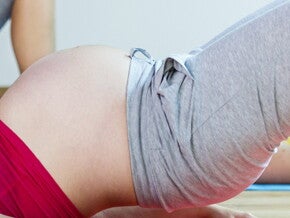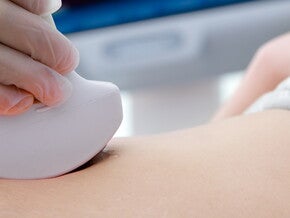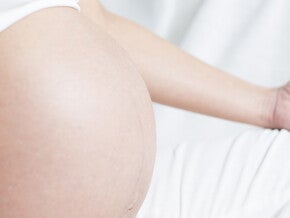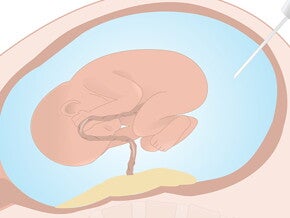
- Exercise non-competitively at least three times a week.
- Don’t exercise vigorously in hot, humid weather.
- Don’t exercise if you have a fever.
- Avoid all jarring, bouncing movements and rapid direction changes.
- Exercise only on a well-sprung surface.
- Use good footwear. Adequate support to your feet is essential.
- A good bra for support and comfort is essential.
- Avoid deep flexion or extension of your joints to protect them from injury.
- Do warming up exercises, such as slow walking or stationary cycling, for at least five minutes before any vigorous exercise.
- Cooling down is essential. Do gentle static stretching exercises.
- Monitor your response to exercise by measuring your pulse-rate.
- Rise gradually from the floor to avoid a sudden drop in blood pressure, which can result in dizziness.
- An increase in your metabolic rate during pregnancy may predispose you to overheating and dehydration, which may have a detrimental effect on your baby.
- Drink liquids before, during and after exercise to prevent dehydration.
- Sedentary women should plan a personalised exercise programme to gradually increase levels of activity.
- Active women should recognise their new limitations and follow the exercise guidelines.
- Should you experience any unusual symptoms, stop exercising immediately and consult your caregiver.
Have fun… enjoy your exercising!
Also remember when exercising…
- Your heart rate should not exceed 140 beats a minute.
- The duration of strenuous activities should not exceed 15 minutes.
- After 16 weeks gestation, reduce the amount of time spent on your back. Lie on your side to reduce the risk of hypotension (drop in blood pressure).
- Don’t hold your breath while exercising. Concentrate on controlled breathing techniques.
- Ensure your kilojoule intake meets your additional energy requirements.
When to stop exercising
Should you experience any of the following, stop exercising immediately and contact your caregiver.
- Nausea and/or vomiting.
- Pain of any kind – chest, head, back, hips or pubis.
- Dizziness, fainting.
- Shortness of breath. Palpitations, tachycardia.
- Difficulty walking.
- Generalised oedema.
- Decreased foetal activity.
- Vaginal bleeding or leaking of amniotic fluid.
- Onset of uterine contractions.

















